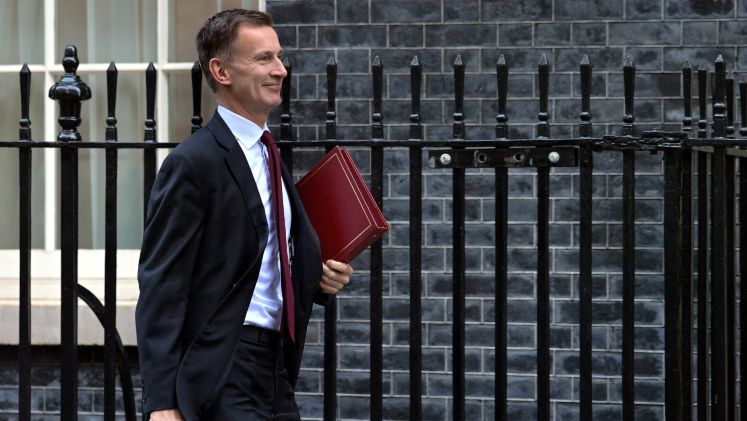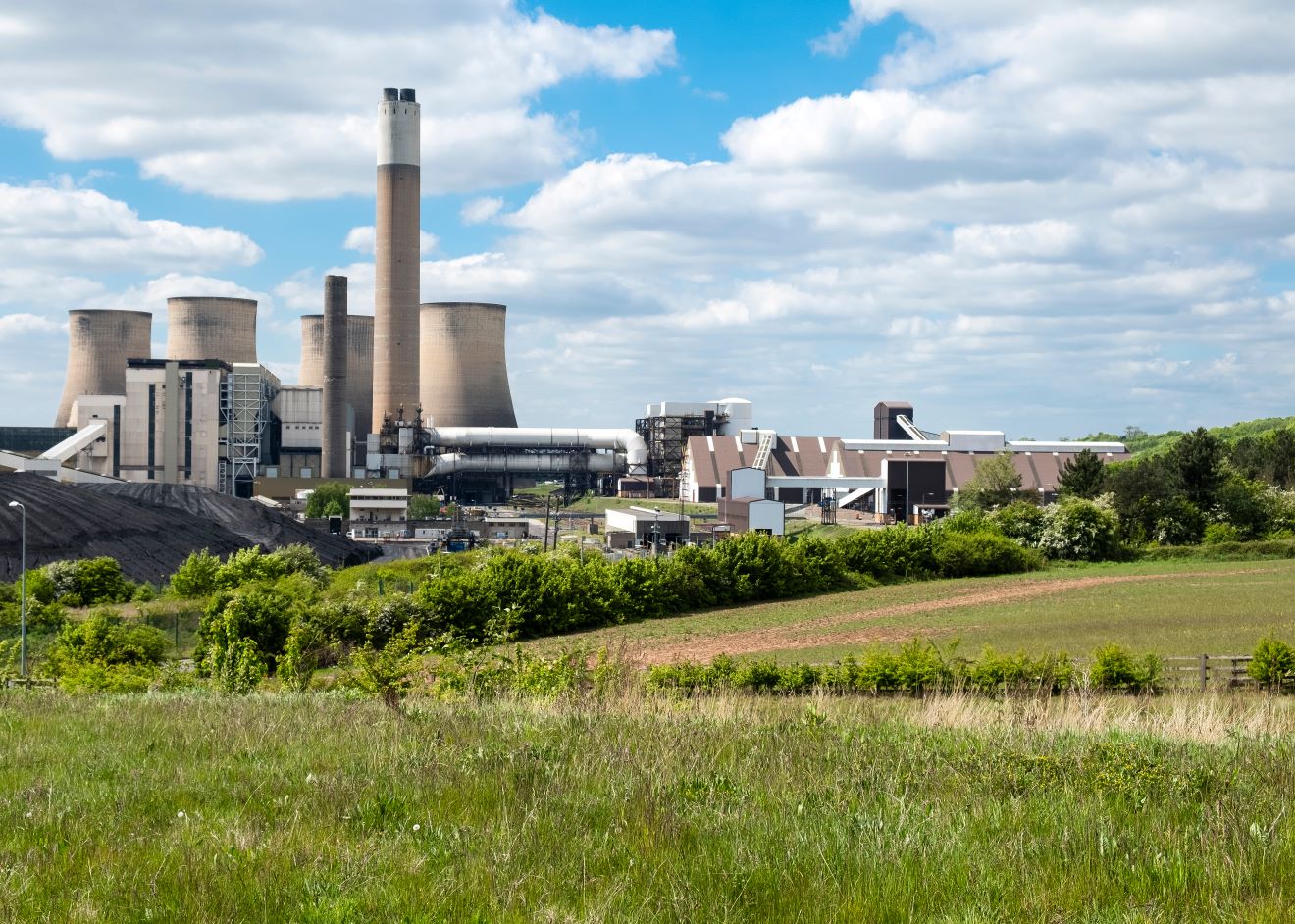If the next parliament doesn’t embrace the challenge and opportunities of creating a clean, green economy it will leave the UK languishing on a path to continued relative stagnation, write Dimitri Zenghelis and Esin Serin.
Whether the next government puts the UK on a truly environmentally clean path is not just a worry for green groups: it will determine the prosperity of UK society. The evidence shows that enabling and supporting the transition to net zero emissions is a prerequisite for inducing innovation and efficiency, making the UK economy more resilient, productive and competitive in fast growing global markets.
The alternative is likely to be continued stagnation in productivity and living standards, along with a loss of competitiveness in global markets for the technologies and services of the future.
Net zero is about a more resilient economy
Britain needs a government that shows it has learned from the energy crisis.
Despite repeated attempts to portray net zero ambition as a threat to the economy and households, action in line with net zero ultimately goes hand-in-hand with economic growth, energy security and lower energy and transport costs. Britain needs a government that shows it has learned from the energy crisis triggered by Russia’s invasion of Ukraine, which forced up the price of energy, drove inflation and required the Government to spend an estimated £39 billion annually for two years on bill support, which contributed to huge profits for energy companies and foreign gas suppliers. This cost would have been lower had the UK already invested more in key areas that are necessary for the net zero transition, including energy efficiency and domestic renewable energy. The Office for Budget Responsibility calculates that if the UK continues its dependence on gas at the current level, recurring gas price spikes could add around 13 per cent of GDP to public debt by 2050.
The economic gains are even greater when we take full account of the other benefits, such as reduced traffic congestion and air pollution. These problems currently threaten people’s wellbeing and limit productivity, with air pollution costing the NHS and UK businesses more than £20 billion each year.
Pivotal five years to frontload the investment required
It cannot be denied, however, that investment in the transition needs to be frontloaded. This is because net zero is about replacing the labour- and resource-intensive processes of the fossil fuel economy with the capital and knowledge-intensive technologies of the 21st century economy (like wind, solar PV and batteries). The former involves ongoing imports of (volatile) fossil fuels and costly labour resources to operate associated infrastructure, whereas the latter operates at close to zero marginal costs, once the kit is installed.
The Climate Change Committee estimates that the UK needs to grow its annual low-carbon investment five-fold from around £10 billion in 2020 to £50 billion by 2030 (and maintain it around that level) if it is to deliver on net zero emissions by 2050. Ensuring the UK can maximise economic and social opportunities along the way requires a coherent investment programme designed to make up for decades of underinvestment in key assets like public buildings and skills, tackle biodiversity loss and environmental degradation, and develop domestic capabilities in markets of the future. Achieving these objectives will require increasing annual investment by at least 3 per cent of GDP (or £77 billion at current prices), with at least 1 per cent of GDP (or £26 billion) coming from the public sector, according to a recent estimate.
Green technology is cheaper in the long run
Many low-carbon technologies over their lifetime are now cheaper than the fossil fuel processes they replace.
Technologies such as solar PV panels, heat pumps, EVs and batteries are modular, replicable and scalable. Such technologies are able to unlock rapid cost reductions and increasing returns to investment through learning by doing, economies of scale and complementary network effects. For example, every doubling in deployment of solar PV kit results in a roughly 20–30 per cent reduction in cost. Deployment over recent years has been rising at a rate of close to 20 to 30 per cent a year, as a result of which costs have fallen by around 10 per cent a year. Many low-carbon technologies over their lifetime are now cheaper than the fossil fuel processes they replace.
Of course, not all clean substitute technologies are subject to increasing returns or Wright’s Law style cost reductions. There will still be a need for some complex and/or bespoke labour too (for example, in the construction of CCUS and nuclear power plants). Heat pumps will get cheaper, but employing plumbers to rip out pipes and radiators will be costly; wind turbines and solar panels are falling in costs, but rolling grid to remote coastal substations will be expensive and subject to planning restrictions.
Early investors will have an advantage
The global transition to clean technologies and processes can be thought of as a positive sum game, to the extent that it stimulates innovation and drives productivity-boosting cost reductions. But it is also a zero-sum game, because early movers gain at the expense of laggards by attracting investment, developing knowledge clusters and building supply lines before the competition. China stands out in this regard. Early strategic investment in EVs, batteries and solar PV allowed Chinese firms to corner the market in fast-growing global sectors. Clean sectors accounted for 40 per cent of China’s GDP growth in 2023. Other countries are waking up to the dangers of falling behind and channelling huge sums into clean transitions. European car makers were slow to adopt battery technologies and the sector, along with the jobs and supply chains that go with it, is at existential risk.
Delaying ambitious action to free ride on the efforts of other countries that invest early to bring down costs risks the loss of UK jobs and access to new, rapidly growing markets.
Delaying ambitious action to free ride on the efforts of other countries that invest early to bring down costs risks the loss of UK jobs and access to new, rapidly growing markets. The UK should instead build on its pre-existing strengths to competitively serve growing global demand for clean technologies and services.
The UK is a scientific leader in the knowledge economy and a centre of services such as finance, consultancy, engineering and design, which will be core to the green transition. It also has specialised innovative capabilities in several clean technologies that are seeing rapid growth globally, such as offshore wind, CCUS, clean aviation and tidal stream energy. Further investment in these innovative technologies can unlock export opportunities – along with productivity-enhancing spillover effects into other sectors, with potential for relevant investments to support local prosperity as well, particularly in less productive parts of the country.
The alternative – locking into inefficient carbon-intensive infrastructure, skills and ideas – risks creating stranded and devalued assets that are unviable in the 21st century. Continued investment in the unsustainable economy, such as development of new oil and gas fields in the North Sea or the construction of homes and offices that are not energy-efficient or climate-resilient, raises costly risks that will be regretted in the not too distant future.
A robust policy framework must lay the foundations for a sustainable, inclusive and resilient economy founded on flexibility to adapt to a rapidly changing world. Policy must match target-setting with institutional innovation, building the capacity and expertise to incentivise and deliver change. Fiscal rules and frameworks must create the space needed to invest in production that generates productivity growth, boosts tax revenues and reduces long-term public debt/GDP.
A general election at the critical juncture
There is strong evidence that public policies are the most important driver of deployment of, and innovation in, sustainable, inclusive and resilient technologies.
There is strong evidence that public policies are the most important driver of deployment of, and innovation in, sustainable, inclusive and resilient technologies. A clear, credible and coherent set of policies to induce net zero investment enables investors to take advantage of opportunities in the new economy. Tempering investors’ perception of policy risk in highly regulated sectors like energy, buildings and transport lowers the private cost of capital. Capturing opportunities in an increasingly competitive global arena therefore requires early and strategic intervention. The next parliament will either take up this challenge or leave the UK on a path to continued relative stagnation in living standards, lost competitive advantage and macroeconomic instability.
All articles posted on this blog give the views of the author(s), and not the position of LSE British Politics and Policy, nor of the London School of Economics and Political Science.
Image credit: Diana Vucane on Shutterstock.







